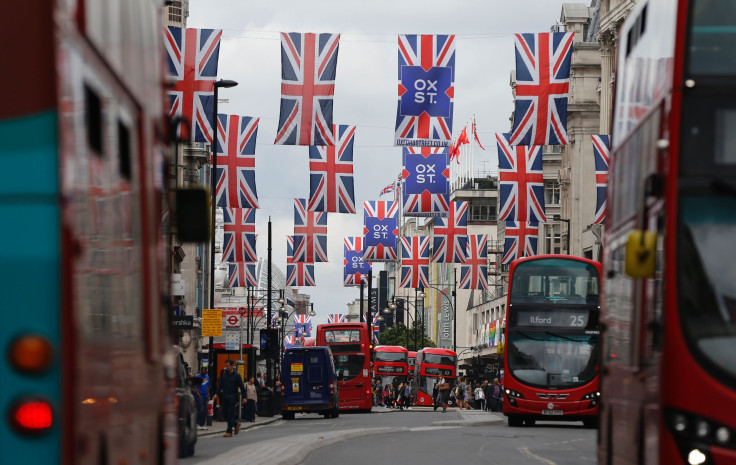Brexit Campaigners’ Backpedalling Angers Britons As World Leaders Debate Timing Of UK’s Exit

UPDATE: 2:45 a.m. EDT — In his first public appearance since the “leave” campaign won Thursday’s EU referendum, the U.K.’s Treasury chief George Osborne sought to calm nerves in the market, stating Monday that the country was ready to face the future “from a position of strength.”
However, he acknowledged it would not be “plain sailing” in the days ahead as volatility and uncertainties continue to rattle investors. “As I said before the referendum this will have an impact on the economy and the public finances, and there will need to be action to address that. But no one should doubt are resolve to maintain the fiscal stability we have delivered for this country. The British economy is fundamentally strong, we are highly competitive and we are open for business,” Osborne said.
He added that he would continue to play an “active part” in the debate about the U.K.’s role in Europe. “Together my colleagues in the government in the Conservative party and in Parliament will have to determine what those terms should be, and will have to negotiate with our European friends and allies to agree them,” Osborne said. “I intend to play an active part in that debate, for I want this great trading nation of ours to put in place the strongest possible economic links with our European neighbors.”
Following Osborne’s remarks, the pound, which had continued to decline during trade in Asia Monday, pared some of its losses, trading at $1.345 — down 1.7 percent against the dollar.
Original story:
U.S. Secretary of State John Kerry will visit Brussels and London Monday as world leaders scramble to contain the fallout from last week’s surprise vote in the U.K. to exit the European Union. The visit comes amid a flurry of diplomatic activity in Europe in the wake of the so-called Brexit, and amid increasing anger in the U.K. over the “leave” campaigners’ failure to present a proper post-exit plan.
“I am looking forward to my meetings tomorrow, when I will meet in both Brussels and London — Brussels with the EU and, of course, in London in order to determine what they’re thinking about the transition and the process ahead,” Kerry said Sunday at a joint press conference with Italian Foreign Minister Paolo Gentiloni in Rome. “The most important thing is that all of us as leaders work together to provide as much continuity, as much stability, as much certainty as possible in order for the marketplace to understand that there are ways to minimize disruption, there are ways to smartly move ahead in order to protect the values and interests that we share in common.”
Kerry’s comments came at a time when misgivings in the U.K. over the referendum result have been growing. In what is being perceived as a clear sign of backtracking, leading Brexit campaigner and a Conservative Party politician Iain Duncan Smith recently said that he had never made the pledge to spend 350 million pounds ($469 million) “sent to the EU every week” on the U.K.’s National Health Service — a key “leave” campaign claim that had even featured on its buses.
“The 350 million pounds was an extrapolation of the 19.1 billion pounds — that’s the total amount of money we gave across to the European Union. What we actually said was a significant amount of it would go to the NHS,” Smith said in an interview with the BBC. “There was talk about it going to the NHS, but there are other bits and pieces like agriculture, which is part of the process. That is the divide up. It was never the total.”
A House of Commons petition, which is now being examined for possible fraudulent signatures, calling for a second EU referendum has so far been signed by 3.5 million people, but Prime Minister David Cameron has ruled out the possibility of a second vote.
“One country has made a decision. Obviously, it is a decision that the United States had hoped would go the other way. But it didn’t. And so we begin with a fundamental respect for voters,” Kerry said Monday. “We will continue, the United States, to have a very close and special relationship with Great Britain. We value that relationship. That does not change because of this vote.”
Meanwhile, in Europe, the view that the U.K. should be given time to rethink its decision is reportedly gaining traction, even though the main assumption — that the country would eventually leave the 28-nation EU — still remains.
“If they treat the referendum as a nonevent, we’ll treat it as a nonevent,” a senior official in Brussels, whose name was not revealed, told the Wall Street Journal. “The [democratic] decision of the people today can overturn the democratic decision of yesterday.”
In the meantime, the uncertainty over the economic future of the U.K., and of an EU bereft of the U.K., continues to rattle global investors. During Asian trading hours Monday, the pound sterling — already battered by its biggest single-day fall against the dollar on Friday — continued to decline, last trading at $1.3365, down nearly 3 percent from Friday's close.
In a bid to soothe the investors’ jittery nerves, the British Chancellor of the Exchequer George Osborne will issue a statement before European markets open Monday.
“The Chancellor will make a statement to provide reassurance about financial and economic stability in light of the referendum result and the actions that he and the rest of the government will be taking to protect the national interest over the coming period,” a U.K. Treasury spokesman said in a statement.
© Copyright IBTimes 2024. All rights reserved.






















